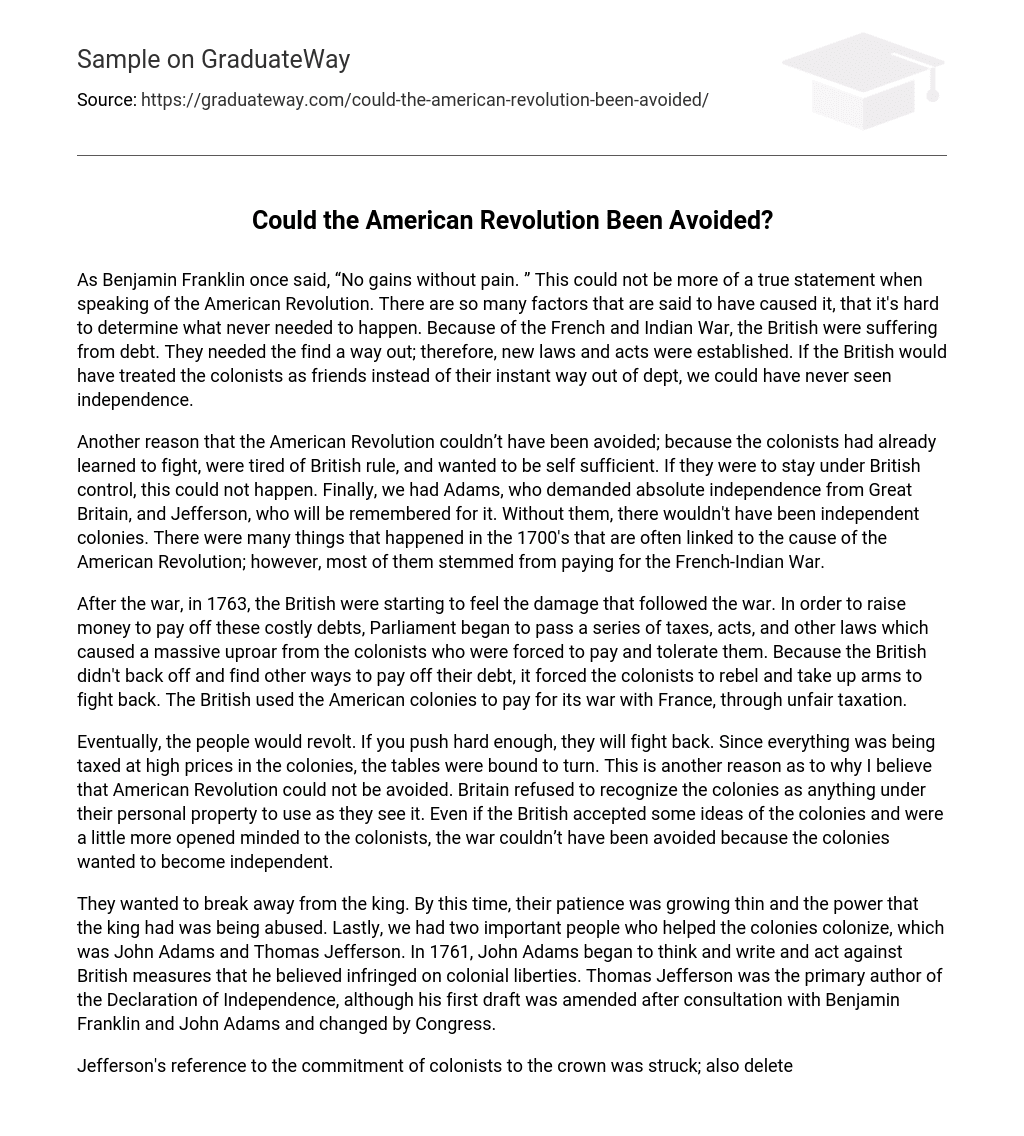Benjamin Franklin believed that, despite the hardships it brought, the American Revolution was an essential result. The revolution was motivated by multiple factors, making it difficult to determine which ones could have been prevented. The British encountered financial problems as a consequence of the French and Indian War, causing them to implement new laws and acts for relief. If the British had seen the colonists as partners instead of merely potential sources of debt relief, independence might not have been sought after.
The inevitability of the American Revolution can be attributed to multiple factors. Firstly, the colonists had gained military experience and were determined to break free from British rule in order to establish their own self-sufficiency, which would have been hindered by remaining under British control. Additionally, influential figures like Adams and Jefferson played a significant role in forming independent colonies by advocating for complete independence from Great Britain and playing crucial roles in achieving it. Many events that occurred during the 1700s due to the financial burden of the French-Indian War are often considered causes of the American Revolution.
Following the conclusion of the war in 1763, the British faced the repercussions of the conflict. In an effort to address their substantial debts, Parliament enacted a series of taxes, acts, and laws that greatly angered the colonists who were tasked with shouldering these financial burdens. When Britain refused to consider alternative approaches for repaying their debt, the colonists revolted and resorted to armed resistance. The British financed their war against France by unfairly taxing and exploiting resources from the American colonies.
Ultimately, the populace would rebel and resist if pushed to their limits. Given the excessive taxation throughout the colonies, it was inevitable for circumstances to evolve. Hence, I assert that the American Revolution could not have been avoided. Britain refused to recognize the colonies as their own territory subject to their discretion. Even if the British had been more receptive and embraced certain colonial notions, independence would still have been sought by the colonies, thus making war inevitable.
The king’s abuse of power provoked a desire to rebel among them. Moreover, the colonization of the colonies owed much to John Adams and Thomas Jefferson. In 1761, Adams began opposing British policies that infringed upon colonial freedoms. Simultaneously, Jefferson took on the task of drafting the initial version of the Declaration of Independence, which was later refined with input from Benjamin Franklin, John Adams, and Congress.
Jefferson’s removal of the colonists’ commitment to the crown and condemnation of the monarchy’s enforcement of slavery in America signifies the elimination of crucial aspects from the text. There were two significant figures advocating for colonial independence, leading to the conclusion that the American Revolution was unavoidable. The British were burdened with debt, while the colonists had acquired knowledge and experience in warfare. Additionally, they were supported by two influential and formidable leaders. When met with sufficient pressure, resistance is inevitable, which ultimately triggered the American Revolution. Personally, I believe it was an eventuality.





